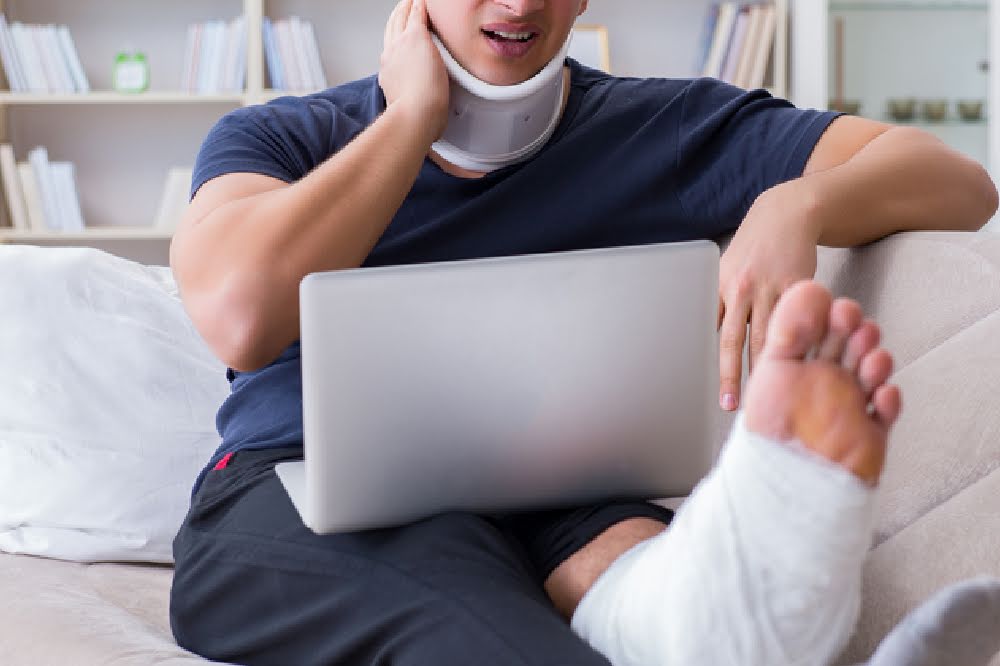Many personal injuries can lead to serious consequences for your health and financial situation. Necessary medical treatment for your injuries can become costly, and you may be out of work as you recover. The extent of your condition is far worse when experiencing catastrophic injuries.
If you experience a catastrophic injury, you should call 911 and seek immediate medical attention. After receiving treatment, you may have questions and wonder what the next steps are that you should take. If someone was at fault for my catastrophic injury, should I take legal action against them? Can I only take legal action if the injuries were catastrophic? What should I do if I experience a catastrophic injury at work?
In this blog, we’ll answer these common questions so that you can move forward after your injury.
Types of Catastrophic Injuries
There are conflicting definitions of what categorizes a catastrophic injury. The American Medical Association defines it as a severe injury to the brain or spine while the National Center for Catastrophic Sports Injury Research expands the definition to include fatalities, cardiac arrest, paralysis, and other injuries.
Because of the differing definitions of catastrophic injuries, what qualifies may differ from state to state. In Indiana, catastrophic injuries include serious injuries that are life-altering or permanent. Some common types of catastrophic injuries in Indiana include:
- Spinal cord injuries
- Severe burns
- Blindness
- Deafness
- Traumatic brain injuries
- Severe head injuries
- Amputations
- Internal organ damage
- Crush injuries
- Severe bone fractures
- Hazardous material exposure
- Fatal injuries
If you suffered from any of these types of injuries, you need to seek immediate medical attention. The long-term effects of suffering from a catastrophic injury can include limited mobility, difficulty communicating, physical deformities, and impairment of cognitive functions.
Causes of Catastrophic Injuries
There are numerous ways someone can suffer a catastrophic injury. Some common ways include:
- Car accidents
- Train accidents
- Medical malpractice
- Workplace accidents
- Construction accidents
- Pedestrian accidents
- Bike accidents
- Truck accidents
- Plane crashes
- Defective products
- Fires
The American National Safety Council stated that accidental injuries are now the third-leading cause of death in the United States after heart disease and cancer. An accidental injury occurs every second, and every three minutes, someone dies as a result of a preventable accident.
Can I Sue Someone For My Catastrophic Injury in Indiana?
If your injury resulted from someone else’s negligence, you have the right to seek damages. The negligent person doesn’t need to bear sole responsibility for the event that caused your injury, but you need to be able to prove that they were partially or entirely at fault. For example, you may bear partial responsibility in a car accident that left you injured, but if the other person involved was negligent, you can still recover damages. Your responsibility in the event that caused your injuries can negatively impact the amount of damages you can recover. This is known as comparative negligence.
There are also situations in which you would take legal action against a company or organization rather than another person. For example, if you were injured because of a defective product, such as an airbag failing to deploy, you would seek damages from the car manufacturer or airbag company. Additionally, your injuries do not need to be catastrophic for you to seek damages against a negligent party.
When taking legal action against an individual, company, or organization, you can seek damages for:
- Medical bills
- Rehabilitation expenses
- Property damage
- Modifications to your home or vehicle because of limited mobility
- Lost wages
- Loss of future earning capacity
- Loss of consortium
- Discomfort
- Physical or emotional pain and suffering
What If My Catastrophic Injury Occurred at Work?
If you suffered from a minor or serious injury while at work, you can qualify for workers’ compensation. Workers’ compensation is designed to cover medical bills and lost wages for victims of workplace injuries. Unlike personal injury claims, workers’ compensation only covers medical bills and lost wages, so it doesn’t cover other damages such as pain and suffering.
Receiving the full workers’ compensation you deserve is often a complex process because employers and their insurance companies often look for ways to underpay or deny claims.
If you’re injured at work, consider hiring expert workers’ compensation attorneys to ensure you receive the full benefits you’re entitled to.
Hire Indiana Personal Injury Attorneys
If you suffered from a catastrophic injury that resulted from another person’s negligence, you need to seek damages for your medical expenses and recovery. When you hire expert personal injury lawyers, you can hold the negligent party responsible for your expenses so that you don’t have to pay out of pocket for an injury that wasn’t your fault.
Here at Crossen Law Firm, we’ve handled countless Indiana personal injury cases, and some of our clients have recovered millions of dollars in damages. Whether you have a personal injury claim or need support in a workers’ compensation case, call us at 317-401-8626, or you can schedule a free case evaluation by clicking here.

 317-401-8626
317-401-8626 
.jpg)